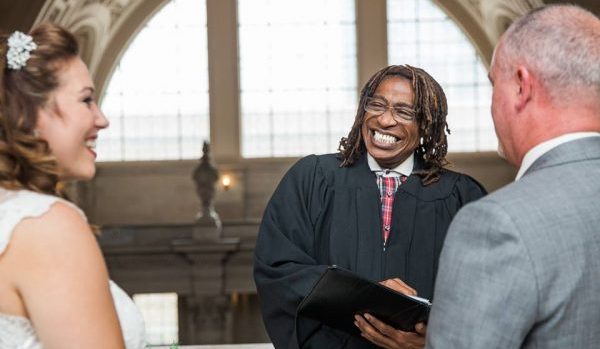Why We Need Marriage Equality

In If These Walls Could Talk 2, a made-for-TV movie produced for Showtime in 2000, Edith (Vanessa Redgrave) and Abby (Marian Seldes) play a longtime lesbian couple during the early 1960s. They’ve obviously been together for decades. One evening, after returning home from a movie, Abby collapses without warning and dies from a massive stroke.
Soon after, Abby’s niece, whom the couple barely knew, descends upon the house and helps herself to whatever she likes. Edith is given thirty days to move — because they weren’t married, Edith has no rights to the home she shared with Abby.
Scenes like these were very common and often repeated throughout the peak years of the AIDS epidemic. A gay man would die of AIDS. His surviving partner could be, and often was, thrown out of their home. In several extreme cases, the survivor might have been locked out of the home without notice of any kind, sometimes being denied access to his own personal property.
With the landmark 2015 Supreme Court ruling that legalized same-sex marriage nationwide, gay and lesbian couples now have the option of marrying. That piece of paper is more than just a romantic notion: a legal marriage entitles surviving same-sex spouses to the same property inheritance rights that heterosexual spouses have always taken for granted. Once married, a surviving spouse cannot be thrown out of the home they shared with their husband or wife.
One gay man who knows all too well the repercussions of not having legal recognition for a relationship is Ken Jones, who is one of the real life characters featured in ABC TV’s groundbreaking, queer, historical drama When We Rise.
Jones, now 65 years old and a wedding officiant, found love twice in his life. Both times were during pre-marriage equality years, and Jones suffered greatly.
When ABC viewers first meet the young Ken Jones (Jonathan Majors), he’s on combat duty during the Vietnam War. Jones is deeply in love with Michael, a young man who serves in the military beside him. The two have a brief relationship until Michael dies in combat. A grief stricken Jones must hide his feelings from his superiors or face a dishonorable discharge.
Jones, speaking to OUT FRONT, recalls the anguish he felt.
“I think it was the absolute worst moment of my life,” he said. “There are still triggers that send me into fear and panic. Fortunately, I have gotten excellent care at the Veterans Hospital in San Francisco from experts in posttraumatic stress disorder.”
Years later in San Francisco, as When We Rise recounts, an older Jones (Michael Kenneth Williams) is in another relationship. When his partner dies of AIDS, Jones is locked out of their home without warning. He files suit.
“What we consider family and what the law considers family are not always the same,” Jones is told by the judge.
Had they been able to marry, Jones would have had the legal right to remain in their home for as long as he wished.
“Quite candidly, the courts let me down,” Jones said. “But they were simply following the law. The laws needed to be changed.
“We need marriage equality because we want to be treated equally in the eyes of the courts and government. And marriage inequality leads to discrimination.”
Situations such as these can have an even greater negative impact on a person’s life, as Jones points out.
“It has an adverse impact on the individual’s health and well-being,” he said. “This is America, and when our Declaration of Independence was signed, loyal Americans were of one mind to protect life, liberty, and the pursuit of happiness for all people.”
Marriage is more than just a wedding cake. For queer people, having the right to marry can be a matter of life and death.
What's Your Reaction?
David-Elijah Nahmod is an American/Israeli of Syrian descent who has lived in New York City and Tel Aviv. Currently in San Francisco, his eclectic writing career has included LGBTQ and Jewish publications, and monster magazines. Follow him on Facebook: https://www.facebook.com/David-Elijah-Nahmod-Author-633417923400442/ and Twitter:DavidElijahN










